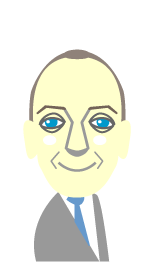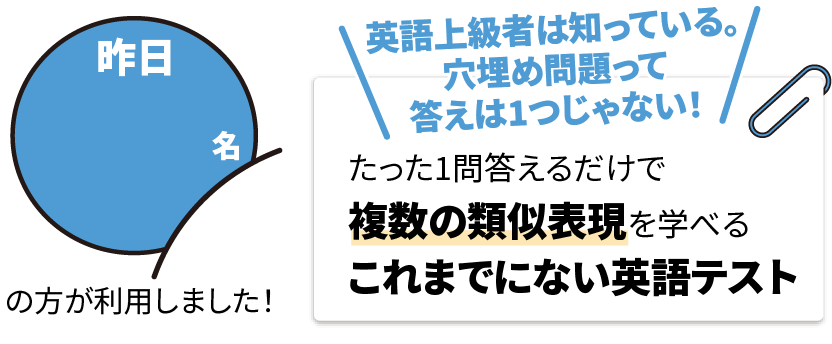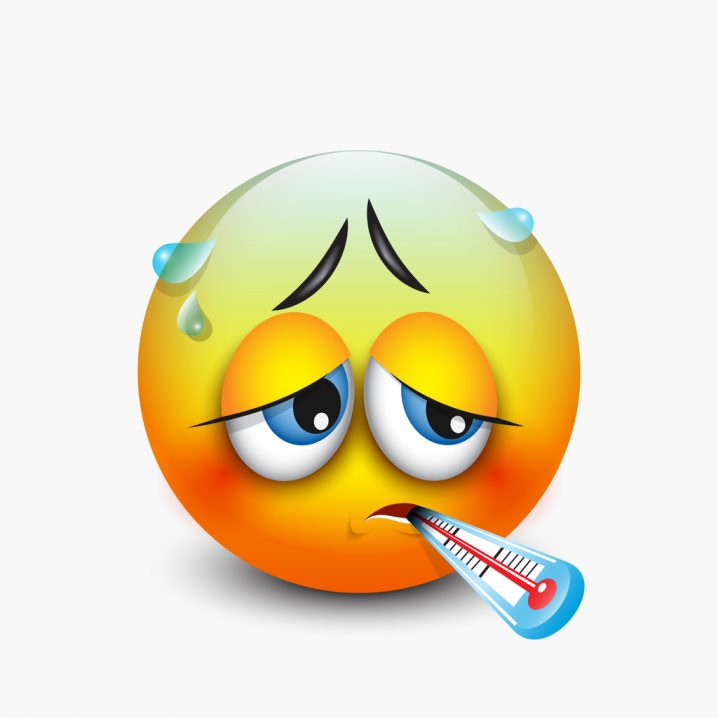Hello, this is Simon.
The other day I had a high fever and so took a day off work. At first I was fine. I just woke up with a slight headache. It wasn’t a throbbing or pounding headache, so I didn’t think anything of it. (I had actually been drinking the night before, so thought that was the cause.) However, that evening I started to feel fatigued, and then my cheeks started feeling flush, so I took my temperature. It was 39.3 degrees! I was worried because I once had a temperature that high some years ago. It was when I got the “Swine Flu”.
That was a particularly unpleasant time. It came on when I was working. I started feeling feverish so checked my temperature, it was around 37.5 degrees. I was still okay, so I continued working. However, I started feeling vacant, and at times was completely spaced out. My joints started to ache and then my cheeks started to burn. I was worried so checked my temperature again, and it had shot up to 39.5 degrees! I went to the doctor and on the way my breathing became labored. I was panting even though I was just sitting in the passenger seat of a car. At the doctor’s I was told I had “Swine Flu” and would need to take several days off of work. I stayed at home for the next few days, but it took at least a couple of days before my fever broke. I thought to myself, “I never want to go though this experience again.”
Fortunately, this time wasn’t so bad. The next morning my fever, had dropped to 38 degrees, and when I saw the doctor my temperature was back to normal. I was going to go to work, but my boss was worried that my illness might be contagious, so I he told me to go home and rest up.
I usually catch a slight cold at some point in the winter season, so I’m hoping that this was my one illness for the year, and that I’ll be fine for the rest of this winter.
“a slight headache”
The adjective “slight” means “small in degree; inconsiderable”. It is often used to describe some kind of discomfort that is small, so just bothers us a little (e.g. I have a slight pain in my shoulder./I feel slight discomfort when I lie down.)
“a throbbing or pounding headache”
The adjective “throbbing” means “causing pain in a series of regular beats”. It comes from the verb “throb” which means “to produce a strong, regular beat” (e.g. The music throbs with a constant beat./His head throbbed, and his body ached./I couldn’t sleep because my sprained toe was throbbing all night.)
The adjective “pounding” means repeated and heavy striking or hitting of someone or something”. It comes from the verb “pound” which means “to hit repeatedly with force/to beat very strongly” (e.g. He pounded his fists on the table./My heart was still pounding after the crash./My head was pounding from the headache.)
“feel fatigued”
“Fatigued” is an adjective which means to feel physically very tired or exhausted (e.g. He was so fatigued, that his whole body ached./The illness left me feeling fatigued and weak.)
“feeling flush”
The noun “flush” means “a red color that appears on your face or body because you are embarrassed, hot, etc.” (e.g. After going for a short run, I felt a little flushed.) It can also be a verb which means “to become red in the face, especially as a result of strong emotions, heat, or alcohol” (e.g. The compliment caused his face to flush.)
“I took/checked my temperature”
“Take” and “check” are the two most common verbs used to mean “measure” one’s temperature. There is a slight difference in nuance, but they practically have the same meaning, so can be used interchangeably.
“I started feeling vacant/spaced out”
“Vacant” means empty or not occupied. When you feel vacant, it is as though your head is empty. To be “spaced out” means to not be completely conscious of what is happening around you. In Japanese these mean something like 「ぼーっとしている」.
“my joints started to ache”
“Joints” are parts of the body were bones are connected to bones. “Ache” is a dull pain. It is often paired with certain body parts, the most common ones being: headache, toothache, stomachache and earache.
“my cheeks started to burn”
If a part of your body heats up to a high temperature, the verb “burn” can be used. It is often used with “face” and “cheeks” as they can go bright red when you are hot.
“shot up to 39.5 degrees/dropped to 38 degrees”
I’m sure you are familiar with the words “increase” and “decrease” to talk about temperature rising or falling. In causal conversation we often use the phrases “go up”, “go down” and the verb “drop” (My temperature went up/down/dropped.) For a sudden or rapid increase or decrease we often used the phrases “shoot up” or “plummet”. These can all be used to talk about body temperature, room temperature, or the outside temperature
“my breathing became labored”
The adjective “labored” means “needing a lot of effort, usually because someone is tired”. It is often used with nouns such as “breathing” or “movements”.
“my fever broke”
The verb “break” when used with “fever” means to come to an end. We usually use it when a fever drops back to our normal body temperature, and our temperature begins to stabilize.
“might be contagious”
The adjective “contagious” is used to describe a disease that is “spread from one person or organism to another, typically by direct contact” (e.g. I was relieved when the doctor told me my illness wasn’t contagious./Experts warn that this new strain of influenza is highly contagious.)
When the temperature starts to drop around this time of year, many of us get ill. Colds, fevers, and influenza are common. As I got sick myself, I thought it would be a good opportunity to introduce some useful words and phrases.
I hope this was helpful.
See you next month, and please take care!

Hello! My name is Simon.
I am from New Zealand, and have been living and teaching English in Japan since 1999.
My hobbies include movies, playing the guitar, gardening and hiking.
※このブログでは英語学習に役立つ情報アドバイスを提供していますが、本ブログで提供された情報及びアドバイスによって起きた問題に関しては一切、当方やライターに責任や義務は発生しません。
※ここでの情報や助言を参考に英文を書いたり下した判断は、すべて読者の責任において行ってください。ここに掲載されている記事内の主張等は、個人の見解であり当社の意見を代弁・代表するものではありません。








 (3 イイネ!が押されています)
(3 イイネ!が押されています)



























コメントする